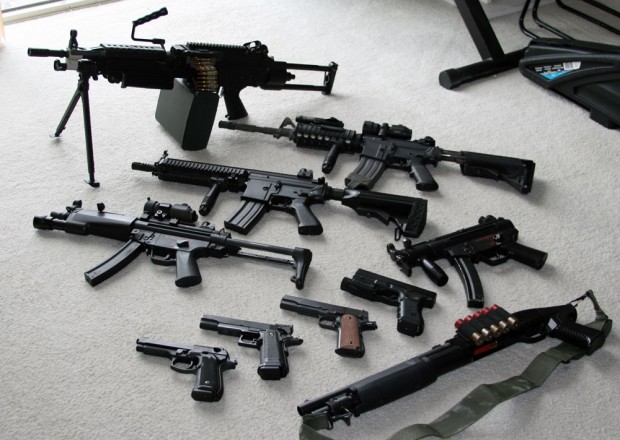When it comes to national gun laws, the United States is about as far from united as it gets. Beyond the loose set of federal regulations that everyone must follow, there are 50 unique state laws and even more individual county and city rules. It's resulted in a confusing tapestry of gun regulations that vary drastically depending on where you happen to be. There's variation in anything from background checks and handgun permit requirements to the sale of semi-automatic weapons and waiting periods. Even rules on allowing firearms on college campuses, in bars, or even in churches can differ across certain state lines.
Federal Gun Law
Federal regulations apply to everyone. But due largely to the intense lobbying efforts and political influence of the gun industry and gun rights groups like the National Rifle Association, these laws have been significantly stripped over the last two decades (see our gun control timeline); they're now far and away the loosest (and most vague) of any industrialized country in the world. States must meet the basic requirements, and then have the option to enact some stricter regulations ... if they choose to do so.
Federal law prohibits buying or transferring firearms across state lines, owning machine guns and other certain high capacity devices, and bringing guns onto school zones ("except as authorized"). Under the law, you also can't buy or possess a gun if you've been convicted of domestic assault or other serious crimes, dishonorably discharged from the military, or if you have a restraining order against you. The prohibition also includes fugitives, drug users, illegal immigrants, and those deemed mentally ill or institutionalized.
And just as Congress has increasingly weakened federal gun regulations over the last two decades, it has also stripped the Bureau of Alcohol, Tobacco, and Firearms of much of its power to adequately enforce those laws, and even to compile comprehensive data on gun ownership rates and crimes. The bottom line is that federal gun laws, as they currently stand, are pretty lightweight. And that means it's up to individual states to step it up if they want stricter regulations.
But that gets real tricky real quick ...
The background check loophole
Advocates of strong gun laws often point to the many loopholes in federal gun law. One of the biggest is the lack of required background checks for private guns sales. Under the law, all licensed gun dealers throughout the country must conduct instant background checks (using a state or FBI database) on potential buyers. But federal law does not require those checks at gun shows and other private sales - including guns bought online- where as many as 40 percent of gun purchases reportedly occur. For these types of sales, it's often no questions asked.
